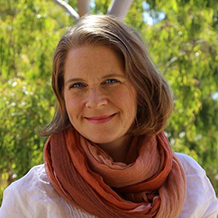
Ann-Elise Lewallen
Abe Fellowship 2015
Project Title
Transnational Ecologies: Indigenous Ecological Practice, Civil Society, and Sustainable Development in India and Japan Institutional Affiliation (at time of award)
Assistant Professor, East Asian Languages and Cultural Studies, University of California / Santa Barbara 